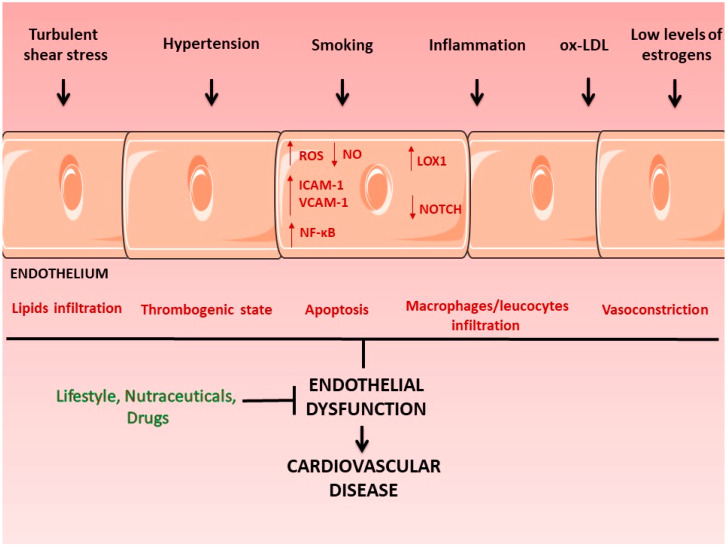Figure 1.
Endothelial dysfunction and cardiovascular diseases (CVDs). Damage to the endothelium caused by different stimuli, including turbulent shear stress, hypertension, smoking, exposure to proinflammatory mediators, ox-LDL, and low levels of estrogens, leads to alterations in endothelial cells, such as increased production of ROS, reduced bioavailability of NO, overexpression of ICAM-1 and VCAM-1, and alteration of molecular pathways involved in endothelial dysfunction (including LOX-1, NF-κB and Notch pathway). The mechanical and biological conditions cited above cause the loss of endothelium integrity, leading to vasoconstriction, lipids, macrophages, and leukocyte infiltration in the subendothelial space, thrombogenicity, and apoptosis of endothelial cells, creating the conditions for the formation of atherosclerotic plaques, the main cause of cardiovascular disease.

